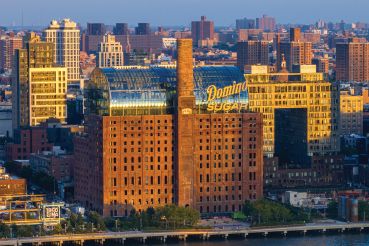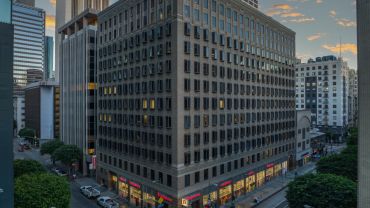Moreover, Mr. Emden said, “It’s not a building that can sell easily,” in part because the lobby was not up to snuff, though he said ownership has embarked on a renovation project for the lobby and elevators.
Mark Weiss, vice chairman of Newmark Knight Frank, described the building thusly: “It’s always been a fair building. Never any better than that, but in a very good location.”
An attorney for the Alavi Foundation, based at 500 Fifth Avenue, did not immediately respond to a request for comment.
THE BUILDING’S HISTORY, AS outlined in great detail in the criminal complaint seeking to seize the Foundation’s assets, reads like something New York Times building chronicler Christopher Gray might write.
The Pahlavi Foundation, a non-profit operated by the Shah, built the tower in the 1970s, with financing from Bank Melli. Following the 1979 revolution, the Islamic Republic established an entity called “the Bonyad Mostazafan,” whose purpose was to expropriate property, including that of the Shah and the Pahlavi Foundation, and then to manage it. In 1980, the Pahlavi Foundation was renamed “The Mostazafan Foundation of New York.” And then, in 1989, the Alavi Foundation.
Some of the building’s earliest tenants included disgraced financiers Marc Rich–indicted, interestingly, for doing business with Iran during the hostage crisis–and Ivan Boesky, indicted for insider trading, according to two sources in the real estate industry. Also, in 1989, the Alavi Foundation and Bank Melli allegedly formed a partnership called 650 Fifth Avenue Company, in order to avoid federal taxes on the tower’s rental income, hiding the move with the creation of two shell companies, Assa Corp and Assa Co. Ltd.
In December 2008, the U.S. Attorney’s office filed a complaint seeking forfeiture of Assa Corporation’s 40 percent interest in 650 Fifth Avenue Company. In the amended complaint filed Thursday, the U.S. Attorney also seeks the 60 percent interest held by the Alavi Foundation.
drubinstein@observer.com


